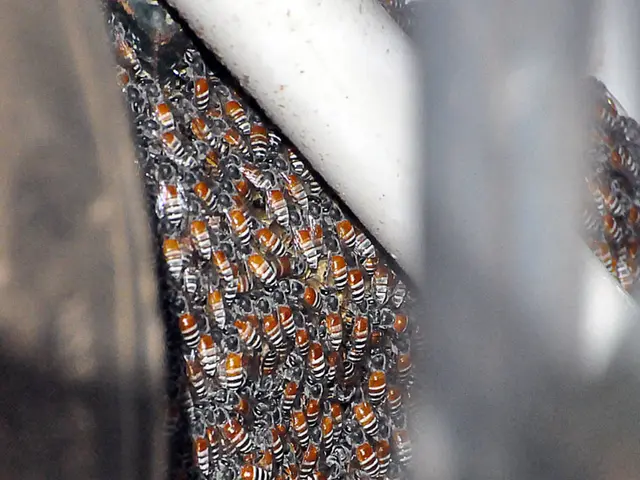Trump's "Gold Standard Science" Exploration: Unpacking Its Core Concepts
In an unexpected move, President Donald Trump has signed an executive order, called "Restoring Gold Standard Science," that allegedly aims to restore trust in science. However, critics claim this order could give the administration the power to dictate what scientific research can be done and shared across the nation, stifling academic freedom.
The executive order, found in section 7, empowers each agency's head to choose a senior appointee who will correct scientific information in response to violations. This decision-making process is open to debate, as it relies on the political leanings of those appointed by the President, who need Senate approval.
Science is ideally self-correcting, with hypotheses being tested and retested, and new findings being evaluated and revised. However, mistakes and abuses can occur due to societal pressures and the human nature of the field. The "Restoring Gold Standard Science" order suggests that there's been a decrease in trust in science, which is not necessarily backed by research. The appointee would then have the power to decide when scientific findings don't meet a nebulously defined "gold standard."
The term "gold standard" is derived from a monetary system, representing the best possible outcome. In science, the gold standard is often associated with the 5-sigma threshold in particle physics, considered the statistical certainty of observing a new particle or phenomenon, or double-blind, randomized, placebo-controlled clinical trials in medical research.
The validity of the Trump administration's adherence to the "gold standard" of science is under question since January 20. The administration has made misleading claims regarding the impact of climate change, incorrectly defined sex determination as binary, and spread vaccine misinformation, among other inconsistencies. A recent report produced by the administration, "Make America Healthy Again," has been criticized for containing errors and fabricated studies, common occurrences in large language models.
Moreover, the Trump administration has faced scrutiny for suppressing scientific findings that contradict its agenda. In March of the past year, Republican Senator Ted Cruz released a list of so-called "woke" research grants. The term "woke," originally used to express awareness towards social and political issues, was re-purposed negatively by conservative commentators. This list included studies on the spread of the mint plant, research aimed at creating biosensors for infectious disease treatment, and a device to stop severe bleeding.
This isn't the first time the Trump administration has faced backlash for interfering with scientific research. During the COVID-19 pandemic, Trump attacked the NIH, and when he left office in 2020, over 400,000 Americans had died due to the virus. In addition, a high-profile scandal involving Trump health appointee Michael Caputo's attempts to restrict a scientific publication during the pandemic further illustrates the administration's disregard for scientific integrity.
An open letter from the group Stand Up For Science criticizes the order, stating that it provides political appointees with broad latitude to brand many common and important scientific activities as scientific misconduct and punish those involved accordingly.
In essence, while the Trump administration claims to restore trust and rigor in federal science, critics argue that it could politicize science, suppress dissent, and undermine the very principles of transparency and objectivity it seeks to uphold.
- The executive order, titled "Restoring Gold Standard Science," signed by President Donald Trump, raises concerns about potential political interference in scientific research and academic freedom.
- The order appoints senior appointees in each agency to correct scientific information in response to violations, which is open to debate given the political leanings of the appointees.
- The administration's adherence to the "gold standard" of science is questionable, given numerous inconsistencies, such as misleading claims about climate change, sex determination, and vaccines.
- Critics argue that the order could lead to the politicization of science, suppression of dissent, and the undermining of transparency and objectivity that are crucial to scientific principles.
- The signatories of an open letter from the group Stand Up For Science express concern about the broad latitude provided to political appointees to brand many scientific activities as scientific misconduct.
- During the COVID-19 pandemic, the Trump administration faced scrutiny for attacking the NIH, suppressing scientific findings, and interfering with scientific research, contributing to over 400,000 American deaths due to the virus.
- Beyond scientific research, the administration has been criticized for producing reports containing errors and fabricated studies, raising questions about policy-and-legislation, environmental-science, climate-change, general-news, and medical-conditions.








